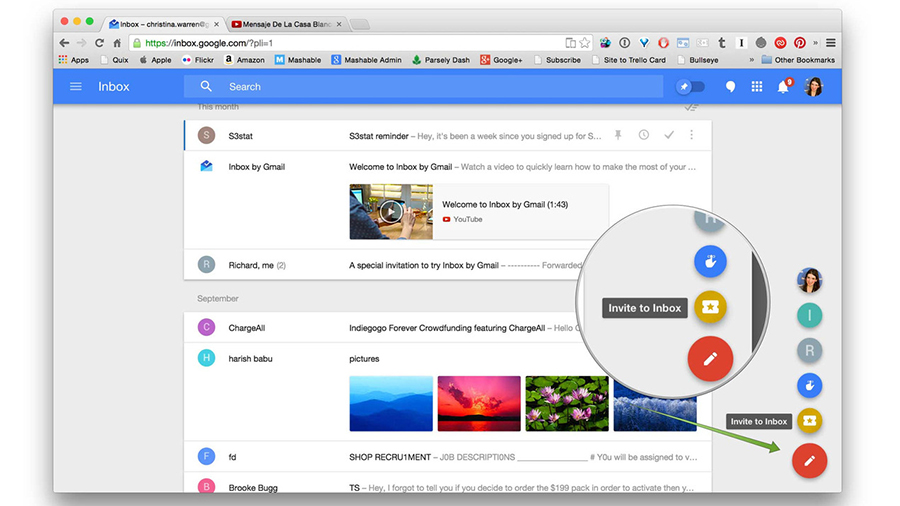Should your company switch to Google Inbox?
Is it the right upgrade for corporate Gmail users?

Making a radical change in email at a large company is a recipe for disaster. Users tend to revolt if you push out a different productivity app, and the support nightmares start arriving in droves. Yet, with Google Inbox, there are quite a few reasons to consider encouraging users to make an upgrade.
It's not a wholesale replacement, like switching from Outlook to Gmail. And it's technically a pure consumer play (since it's not part of Google for Work). Yet business users can take advantage of a few key features to pump up their work productivity. As long as you know there are some trade-offs (according to a few experts), it's worth investigating.
Key changes
The key change here is that Google has offered Google Inbox as the first web app to use its new Material Design metaphor. It's really a major overhaul that takes the virtual concepts of flat colour layouts, whitespace, and a trim design structure and puts them into a browser (or a mobile app).
The interface looks remarkably less cluttered, and the immediate effect for knowledge workers is that you can think a bit more clearly about what you are doing without so many options on the screen. It's arguably a cleaner interface than what you see on an iPad.
Another critical change is that Inbox borrows many ideas from Google Now, the landing page and search platform you can use on many Android phones and tablets (and in the browser). Google Now "listens" to your email and knows when you are near an airport, standing by a bus terminal, or late for a meeting. In Google Inbox, similar features show reminders about flights and even things you've ordered on the web. This all integrates directly into the interface.
A surprising enhancement has been made with search. When you type anything in the search box, you don't have to wait for a drop-down menu or hit Enter. The results appear "live" in your inbox as you type. This increases productivity tremendously over Gmail searches. It also means less of a reliance on Gmail labels (which still appear on the left in a drop-down menu) because you can trust that you can find your needles in the haystack just by typing a search. It improves workflow because you can search more interactively, spontaneously, and quickly.
"Google seems to be taking Inbox toward what might be called dynamic messaging management – that is, trying to reframe email and related tasks as being truly productive instead of the burdens they often are," says Charles King, an IT analyst. "Some of the features appear based on practical lessons Google has learned from developing and managing Gmail. Others, like airline flight alerts, are likely to blend functionality from services like Google Now."
Sign up to the TechRadar Pro newsletter to get all the top news, opinion, features and guidance your business needs to succeed!
Productivity issues
An important question to ask before using Google Inbox (and you have to request an invite at http://www.google.com/inbox first before jumping ship from Gmail) is whether these changes will impact your productivity or if they might cause a slowdown. The app certainly does provide some improvements visually and from a technical standpoint, but any change in how you work could have a detrimental effect if the gains do not compensate for the shift.
One example of this is that Google has moved the tabs for promotions, forum posts, social networking activity, and non-critical updates over to the left column above the tabs. They cannot be disabled or moved from that spot, so if you rely on labels, you will be scrolling down below these hard-coded buckets. You can decide to bundle them into groups and only view them once in a while, so they don't clutter your inbox, but you can't completely ignore them.
John Brandon has covered gadgets and cars for the past 12 years having published over 12,000 articles and tested nearly 8,000 products. He's nothing if not prolific. Before starting his writing career, he led an Information Design practice at a large consumer electronics retailer in the US. His hobbies include deep sea exploration, complaining about the weather, and engineering a vast multiverse conspiracy.
